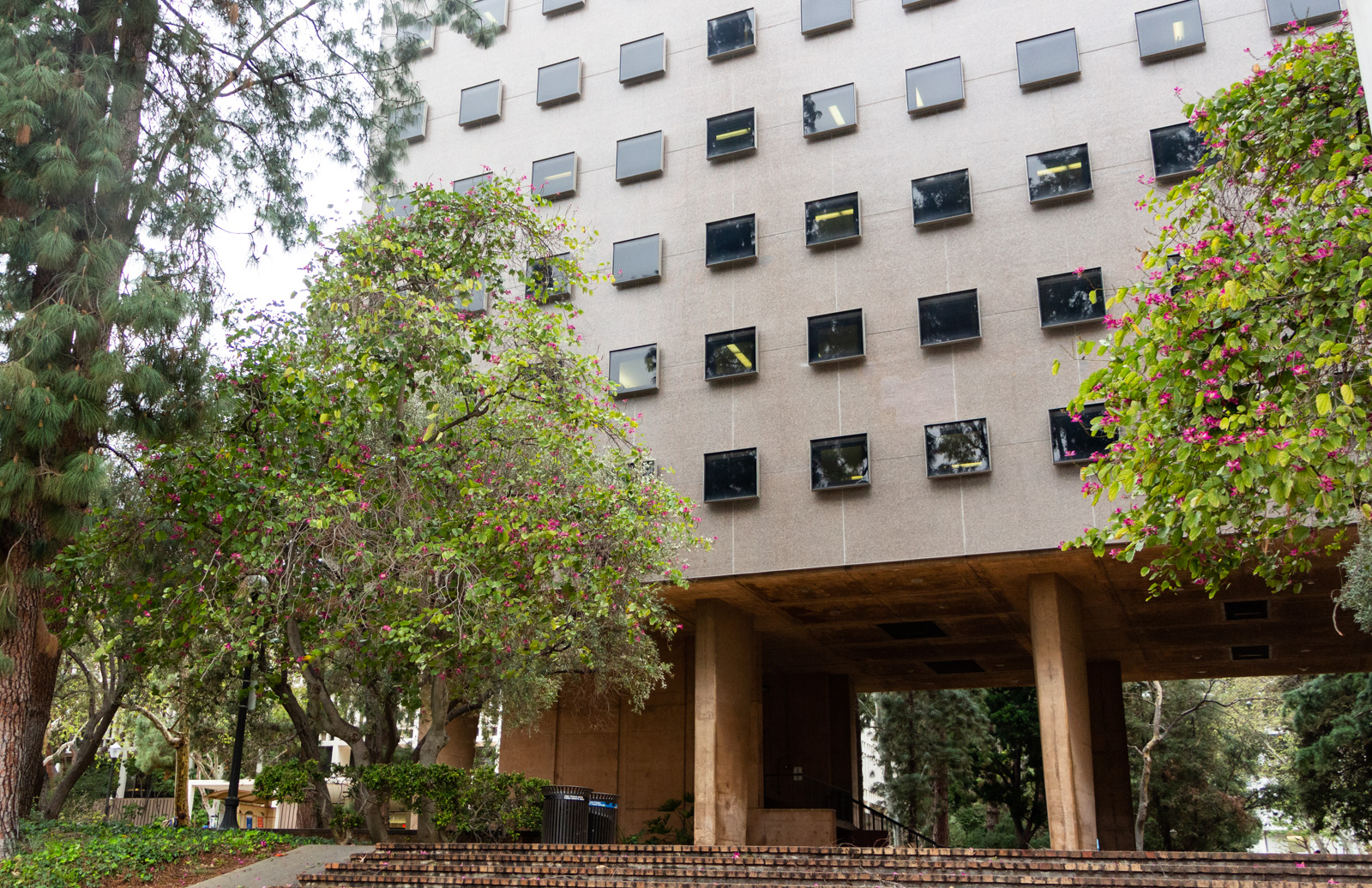Grade inflation: UCLA needs to address the problem hidden in plain sight

Students have long held that UCLA’s history and social science classes give out more A’s than the university’s science classes do. The troubling reason behind this disparity is grade inflation. (Daily Bruin file photo)
By William Bleveans
Jan. 6, 2019 10:29 p.m.
It seems the persistent war of words between North and South Campus students may point to a fundamental problem in UCLA’s grading policies.
Conventional wisdom holds that students seeking easy classes should enroll in the social sciences and humanities, which supposedly grant A’s at a much higher proportion than classes in the sciences. The supposed disparity has long infuriated students in the latter classes, who charge that North Campus students possess artificially inflated grade point averages. While there is no hard data to back up this persistent stereotype, the widespread intuition that it is far too easy to receive an A in such classes is not entirely baseless.
Though UCLA has not yet mounted a comprehensive study of grade inflation in its academic departments, there is evidence the university has joined other prominent institutions in looking the other way when academic departments give out a disproportionate number of high grades. Any cursory examination of BruinWalk.com, a website run by the Daily Bruin that aggregates grade distributions for courses offered at UCLA, indicates that anywhere from 20 to 40 percent of students in social science and humanities courses routinely receive A’s. Moreover, students in the social sciences and humanities regularly receive much higher grades than their counterparts in the hard sciences.
A bevy of evidence on the national level also suggests that grade inflation has become commonplace at prestigious universities. gradeinflation.com, a website dedicated to detailing the practice nationwide, has found that the average GPA in the humanities rose by about 0.15 against the average GPA in the hard sciences between 1959 and 2009. Grade inflation is not just objectionable as a matter of fairness and equity, it also robs transcripts of their value as indicators of student performance. When a disproportionate number of students receive A’s, it becomes harder to distinguish between excellent and mediocre performers. This, in turn, makes the task of professional recruiters and graduate school admissions officers all the more difficult. After all, if nearly every student has a high grade point average, distinctions made among them are bound to be unfair and arbitrary.
Given UCLA’s commitment to academic excellence, its failure to address grade inflation in the humanities and social sciences is somewhat perplexing. Although grade inflation clearly devalues student transcripts and discourages hard work, the university has not been sufficiently moved to investigate the issue – a troubling sign, to say the least.
Although Carla Pestana, chair of the history department, acknowledged that history department faculty had had informal discussions about the issue and she could not produce evidence for the existence of grade inflation.
“I don’t have any evidence that we have such cases in my own department, and indeed that article was discussing a national phenomenon,” Pestana said.
While it may be true that the history department possesses no evidence of grade inflation, the department will surely run into trouble if it attempts to procure evidence merely through informal discussion. Obviously, grade inflation will not make its way onto the agenda if social science and humanities departments refuse to investigate it in the first place.
Moreover, it borders on the ludicrous to argue that UCLA is somehow immune from the national trend toward grade inflation, given its standing as a leading national university.
To remedy the problem, the university must launch a comprehensive investigation that not only defines the extent of the practice in social science and humanities departments, but also recommends corrective measures aimed at restoring academic rigor. As long as department chairs and university administrators are allowed to ignore the problem, UCLA diplomas will only continue to be cheapened by grade inflation.
Although the university has investigative procedures in place to address these types of issues, they will not be sufficient to tackle the problem of grade inflation. UCLA spokesperson Ricardo Vazquez said the university initiates a campuswide review of academic practices every eight years, entailing an evaluation of instruction in each academic department.
But this periodic inquiry is not sufficient to uncover any possible disparity in grading among different departments. Under the current system, UCLA evaluates the grading policies of each department with respect to sister departments at comparable educational institutions. Because the evidence shows that grade inflation is a national phenomenon, such a comparison would probably not raise any red flags. In the end, UCLA needs to assess its academic practices with respect to objective standards of academic excellence.
There is no question that UCLA tolerates grade inflation. Whether it is prepared to address its consequences remains to be seen.

